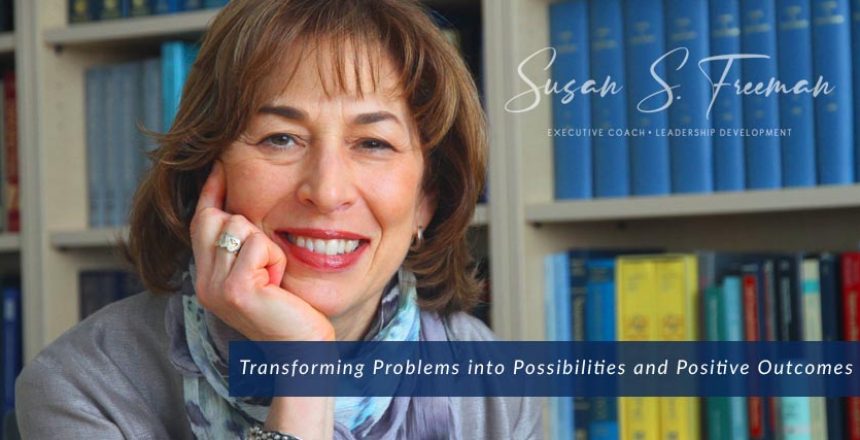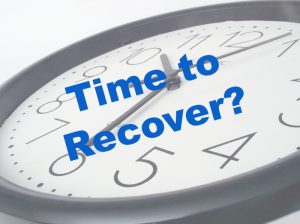 I see it all the time with clients. I’ve done it myself. Push and push and push some more. That’s what we’re supposed to do to “get things done.” Work during the day; work at night and on the weekends. Why some of us even work throughout our vacations because we “have to.” But where is the recovery period?
I see it all the time with clients. I’ve done it myself. Push and push and push some more. That’s what we’re supposed to do to “get things done.” Work during the day; work at night and on the weekends. Why some of us even work throughout our vacations because we “have to.” But where is the recovery period?
In the Harvard Business Review (HBR) this week, bestselling author Shawn Achor, (The Happiness Advantage), talks about the impact of overwork, and the need to cultivate true resilience. What it requires, may not be what you think.
Science is demonstrating that what we really need is recovery.
Achor writes, “The very lack of a recovery period is dramatically holding back our collective ability to be resilient and successful. Research has found that there is a direct correlation between lack of recovery and increased incidence of health and safety problems. And lack of recovery — whether by disrupting sleep with thoughts of work or having continuous cognitive arousal by watching our phones — is costing our companies $62 billion a year (that’s billion, not million) in lost productivity.
And just because work stops, it doesn’t mean we are recovering. We “stop” work sometimes at 5PM, but then we spend the night wrestling with solutions to work problems, talking about our work over dinner, and falling asleep thinking about how much work we’ll do tomorrow. In a study released last month, researchers from Norway found that 7.8% of Norwegians have become workaholics. The scientists cite a definition of “workaholism” as “being overly concerned about work, driven by an uncontrollable work motivation, and investing so much time and effort to work that it impairs other important life areas.
We believe that the number of people who fit that definition includes the majority of American workers, including those who read HBR, which prompted us to begin a study of workaholism in the U.S. Our study will use a large corporate dataset from a major medical company to examine how technology extends our working hours and thus interferes with necessary cognitive recovery, resulting in huge health care costs and turnover costs for employers.
The misconception of resilience is often bred from an early age. Parents trying to teach their children resilience might celebrate a high school student staying up until 3AM to finish a science fair project. What a distortion of resilience! A resilient child is a well-rested one. When an exhausted student goes to school, he risks hurting everyone on the road with his impaired driving; he doesn’t have the cognitive resources to do well on his English test; he has lower self-control with his friends; and at home, he is moody with his parents. Overwork and exhaustion are the opposite of resilience. And the bad habits we learn when we’re young only magnify when we hit the workforce.
In her excellent book, The Sleep Revolution, Arianna Huffington wrote, “We sacrifice sleep in the name of productivity, but ironically our loss of sleep, despite the extra hours we spend at work, adds up to 11 days of lost productivity per year per worker, or about $2,280.”
The key to resilience is trying really hard, then stopping, recovering, and then trying again.
This conclusion is based on biology. Homeostasis is a fundamental biological concept describing the ability of the brain to continuously restore and sustain well-being. Positive neuroscientist Brent Furl from Texas A&M University coined the term “homeostatic value” to describe the value that certain actions have for creating equilibrium, and thus wellbeing, in the body. When the body is out of alignment from overworking, we waste a vast amount of mental and physical resources trying to return to balance before we can move forward.
As Jim Loehr and Tony Schwartz have written, if you have too much time in the performance zone, you need more time in the recovery zone, otherwise you risk burnout. Mustering your resources to “try hard” requires burning energy in order to overcome your currently low arousal level. This is called upregulation. It also exacerbates exhaustion. Thus the more imbalanced we become due to overworking, the more value there is in activities that allow us to return to a state of balance. The value of a recovery period rises in proportion to the amount of work required of us.”
Do you agree? I find this topic very interesting and have much more to say so stay tuned for next week’s blog!


